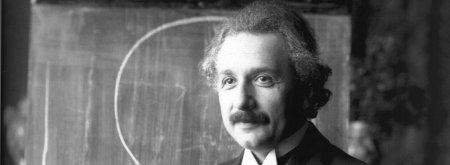Are there Objective Truths about God?
Pilate entered the praetorium again and called Jesus, and said to him, “Are you the King of the Jews?” Jesus answered, “Do you say this of your own accord, or did others say it to you about me?” Pilate answered, “Am I a Jew? Your own nation and the chief priests have handed you over to me; what have you done?” Jesus answered, “My kingship is not of this world; if my kingship were of this world, my servants would fight, that I might not be handed over to the Jews; but my kingship is not from the world.”
Pilate said to him, “So you are a king?” Jesus answered, “You say that I am a king. For this I was born, and for this I have come into the world, to bear witness to the truth. Every one who is of the truth hears my voice.” Pilate said to him, “What is truth?” (John 18.33-38)
1.0 Introduction
1.1 The biblical conception of truth is quite multifaceted.
1.2 There is no peculiarly Christian theory of truth.
1.3 Truth as correspondence with reality.
“To say of what is that it is not, or of what is not that it is, is false; while to say of what is that it is, or of what is not that it is not, is true.” (Aristotle)
1.4 Christian theology’s contribution to a discussion about truth
2.0 Three Challenges to Objective Truth about God
2.1 The Challenge of Verificationism
2.11 The difference between a sentence and a proposition.
2.12 Logical Positivism held that there are literally no propositions about God.
2.13 The Verification Principle of Meaning: A sentence in order to be meaningful must be capable in principle of being empirically verified.
2.14 The theological impact of Verificationism
2.15 The failure of Verificationism
2.151 The Verification Principle would not only force us to dismiss theological statements meaningless, but also a great many scientific statements--along with ethical, aesthetic, and metaphysical statements as well.
2.152 The Verification Principle is self-refuting.
2.1521 Is the sentence “A meaningful sentence must be capable in principle of being empirically verified” itself capable of being empirically verified?
2.2 The Challenge of Mystical Anti-Realism
2.21 Propositions about God are neither true nor false; they are truth valueless.
2.22 What is meant by the Mystical Anti-Realist claim that God is “above human thought and language”?
2.221 The Principle of Bivalence fails to be valid for propositions about God.
2.222 The Principle of Bivalence states that for any proposition p, p is either true or false.
2.223 The closely related Law of Excluded Middle states that for any proposition p and its negation not- p, either p is true or not- p is true.
2.23 The failure of Mystical Anti-Realism
2.231 Such a position is incomprehensible,
2.2311 It is absurd to say that a logical contradiction is not false.
2.2312 It is equally absurd that a logical disjunction is not true.
2.232 Mystical Anti-Realism is incoherent.
2.2321 Consider the proposition expressed by the sentence: “God can be described by bivalent propositions.”
2.2322 Since that proposition is itself a proposition about God, the Principle of Bivalence should not be valid for it. Therefore, it cannot be false.
2.2323 But if it is not false, then how can it be the case that the Principle of Bivalence fails for propositions about God?
2.2324 The Anti-Realist might retort that the above only shows that rational paradox is inevitable when we try to talk about God. But that is not the case. What is incoherent is the Anti-Realist’s denial of the validity of the Principle of Bivalence for propositions about God.
2.233 No reasons can be offered for adopting the view that the Principle of Bivalence is not valid for propositions about God.
2.2331 Any purported reason for adopting this view would involve affirming certain truths about God, e.g., “God is too great to be grasped by human categories of thought” or “God is wholly other,” or “God is omnipotent.”
2.2332 But the Mystical Anti-Realist position holds that there are no bivalent propositions about God.
2.2333 The position can only be embraced by an arational leap of faith.
2.3 The Challenge of Radical Pluralism
2.31 Radical Pluralism holds that each individual constitutes reality himself, so that there is no trans-subjective truth about the way the world is.
2.32 Apparent absurdity of Radical Pluralism
2.321 The view seems evidently absurd.
2.322 But these absurdities result because we are still thinking of an objective reality and trying to marry subjectivism to it.
2.323 According to Radical Pluralism, there is no objective reality; the world has fallen apart and has been replaced by the world-for-me.
2.33 Radical Pluralism is antithetical to the Christian world view
2.331 Christianity ascribes to God a privileged position as the Knower of all truth.
2.332 Radical pluralists thus often see their task as overtly anti-theological in character.
“To give a text an Author is to impose a limit on that text, to furnish it with a final significance, to close the writing .... In precisely this way literature, by refusing to assign ... an ultimate meaning to the text (and to the world as text) liberates what may be called an anti-theological activity, an activity that is truly revolutionary since to refuse to fix meaning is, in the end, to refuse God and his hypostases--reason, science, law.” (Roland Barthes)
2.34 Radical Pluralism is attended by relativism.
2.35 The failure of Radical Pluralism
2.351 The absurdity and sinister nature of Radical Pluralism
“Although this view is very much au courant and with-it in the contemporary intellectual world, it has consequences that are peculiar, not to say preposterous. For example, most of us think that the Chinese authorities did something monstrous in murdering those hundreds of young people in Tiananmen Square, and then compounded their wickedness by denying that they had done it. On Rorty’s view, however, this is an uncharitable misunderstanding. What the authorities were really doing, in denying that they had murdered those students, was something wholly praiseworthy: they were trying to bring it about that the alleged massacre never happened. For they were trying to see to it that their colleagues would let them get away with saying that the massacre never happened; that is, they were trying to make it true that it never happened; and who can fault them for that? The same goes for those contemporary neo-Nazis who claim that there was no holocaust; from a Rortian view, they are only trying to see to it that such a terrible thing never happened; and what could be more commendable than that? This way of thinking has real possibilities for dealing with poverty and disease: if only we let each other get away with saying that there isn’t any poverty and disease--no cancer or AIDS, let’s say--then it would be true that there isn’t any; and if it were true that there isn’t any, then of course there wouldn’t be any.” (Alvin Plantinga)
2.352 Radical Pluralism is self-refuting.
2.3521 “Is Radical Pluralism objectively true?”
2.3522 It claims that “There is no objective truth about the word;” that “Each individual constitutes reality, so that there is no objective reality,” that “Truth is pluralistic,” all of which are purported to be objectively true.
2.353 The Radical Pluralist cannot escape this incoherence by saying that it is only from his perspective that there is no objective truth about the world. For if that is true only from his perspective, that fact does not preclude that there is objective truth about the world, in which case his perspective is objectively false.
2.354 If he replies that it is only from someone else’s perspective that there is objective truth about the world, then it follows that all truth is perspectival, or that Radical Pluralism is objectively true, which is incoherent.
2.36 Why are so many people attracted to pluralistic and relativistic views of truth, despite the fact that they are both preposterous and self-refuting?
2.361 The attraction is due to a misunderstanding of the concept of tolerance.
2.3611 People think that the claim that objective truth exists is incompatible with tolerance of other views because those views must be regarded as false. So in order to maintain tolerance of all views, one must not regard any of them as false. They must all be true. But since they are mutually contradictory, they cannot all be objectively true. Hence, truth must be relative and pluralistic.
2.362 But the very concept of tolerance entails that you disagree with that which you tolerate.
2.3621 Otherwise, you wouldn’t tolerate it; you would agree with it!
2.3622 Thus, the very concept of toleration presupposes that one believes the tolerated view to be false.
2.363 The correct basis of tolerance is not pluralism, but the inherent worth of every human being created in the image of God and therefore endowed with certain God-given rights, including freedom of thought and expression.
3.0 Summary and Conclusion



